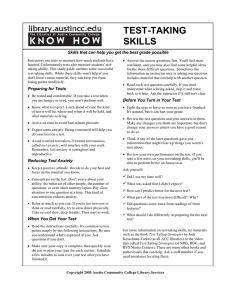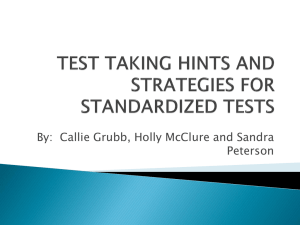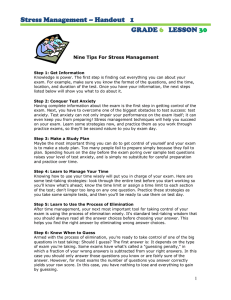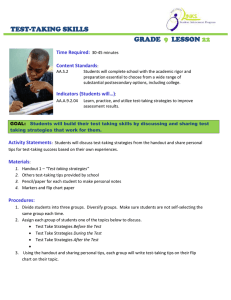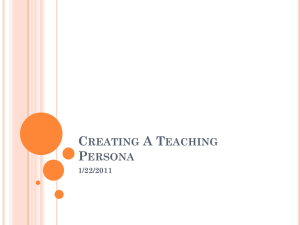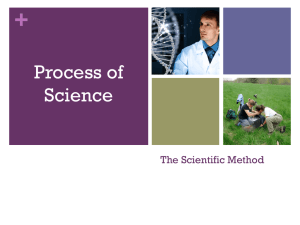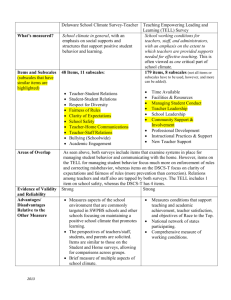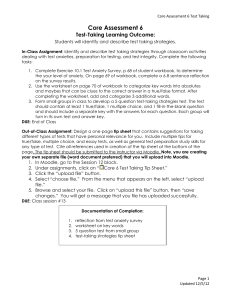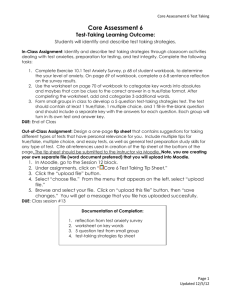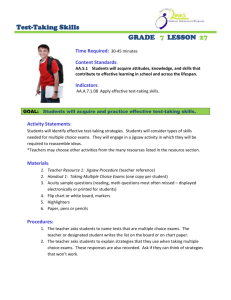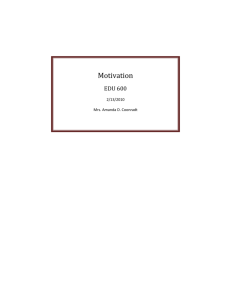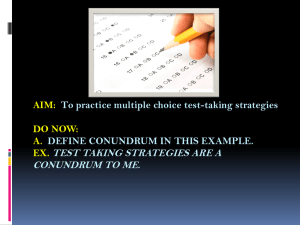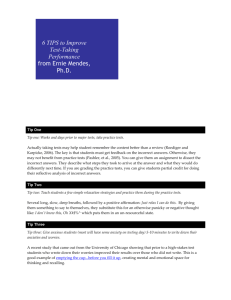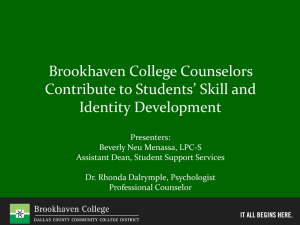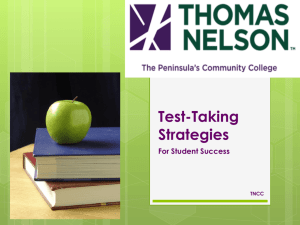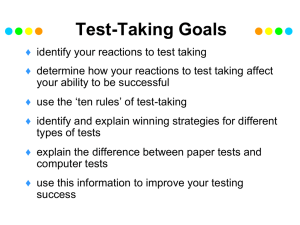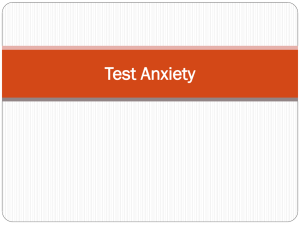SMALSI Powerpoint
advertisement
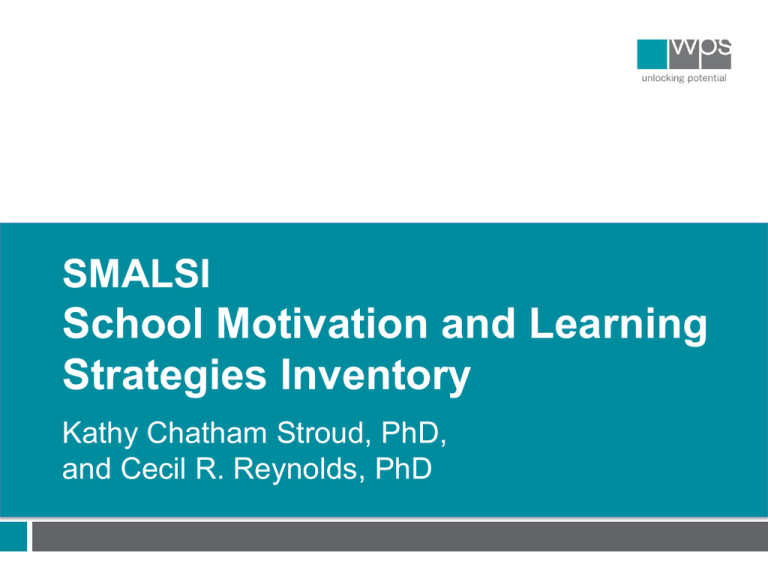
SMALSI School Motivation and Learning Strategies Inventory Kathy Chatham Stroud, PhD, and Cecil R. Reynolds, PhD Help solve the problems of general education before they become the problems of special education. 2 3 What Is the SMALSI? School Motivation and Learning Strategies Inventory Standardized self-report inventory for ages 8 years to 18 years in two forms - Child Form: ages 8–12 - Teen Form: ages 13–18 Designed to assess multiple constructs related to Study Strategies, Academic Motivation, Test-Taking Strategies, and Test Anxiety May be administered individually or in groups, large or small Completed in 20–30 minutes by most students reading at grade level 3.5 or higher (may be read to others) Yields a profile of T-scores (M = 50, SD = 10) from which strengths and weaknesses in specific areas can be determined and targeted for teaching if necessary Unlimited-use of computer scoring or hand scoring available 4 The Number One Goal of SMALSI Use? To assist us in making more children more-effective strategic learners who can demonstrate their knowledge and skills accurately 5 Benefits of Using the SMALSI The SMALSI provides a quick, cost-effective way to identify and target poor learning strategies that affect academic performance 6 Benefits of Using the SMALSI Students who engage in strategic learning and testtaking perform at higher academic levels than those who do not If you improve the study skills, learning strategies, reading comprehension, and test-taking behavior of students, their academic achievement will also improve This is true at all grade levels, with both regular and special education students 7 Benefits of Using the SMALSI Until now, there has been no comprehensive instrument that measures these skills and strategies. The SMALSI fills this void. 8 Who Can Use the SMALSI? School and related psychologists (e.g., child-clinical, pediatric) School counselors and LPCs Educational Diagnosticians Learning Disability Specialists and Special Education Teachers with assessment training Regular Education Teachers with a course in classroom assessment or tests and measurement To use the SMALSI appropriately, the user should have a background in education and learning along with training in assessment or tests and measurement. 9 SMALSI Student Strengths Subscales Scale Definition Study Strategies Selecting important information; relating new to previously learned information; and memory strategies for encoding Note-Taking/ Listening Skills Discriminating important material when taking notes; organizing notes; efficiency in notetaking Reading and Comprehension Strategies Previewing, monitoring, and reviewing texts, including self-testing to ensure understanding Researching topics in a variety of ways; organizing writing projects as well as monitoring and self-checking for errors Writing/Research Skills 10 SMALSI Student Strengths Subscales (continued) Scale Definition Test-Taking Strategies Increasing efficiency in test-taking, including eliminating unlikely answers and strategic guessing Organizational Techniques Organizing class and study materials; structuring assignments, including homework and other projects Time Management Effective use of time to complete assignments; understanding of time needed for academic tasks 11 SMALSI Student Liabilities Subscales Scale Definition Low Academic Motivation Level of intrinsic motivation to engage and succeed in academic tasks Test Anxiety Student’s experience of debilitating symptoms of test anxiety; lower performance on tests due to excessive worry Concentration/Attention Difficulties Attending to lectures and other academic tasks; monitoring and adjusting attention to performance; concentrating and the avoidance of distractions 12 Applications of the SMALSI Screening in regular education - Identifying group weaknesses in a classroom or school - Identifying individuals with a lack of or poor developed strategies for learning Pre-referral intervention/prevention Assessing students with disabilities - Learning disabilities - Emotional disturbance - ADHD - TBI 13 The SMALSI targets primary constructs wellestablished in educational psychology and the general education literature In research spanning three decades, these constructs have been linked to academic and educational success After the SMALSI has identified deficiencies in these areas, remediation can begin 14 We offer workshops that suggest specific remediation techniques for each construct measured by the SMALSI. 15 For more information contact: WPS www.wpspublish.com 800.648.8857
